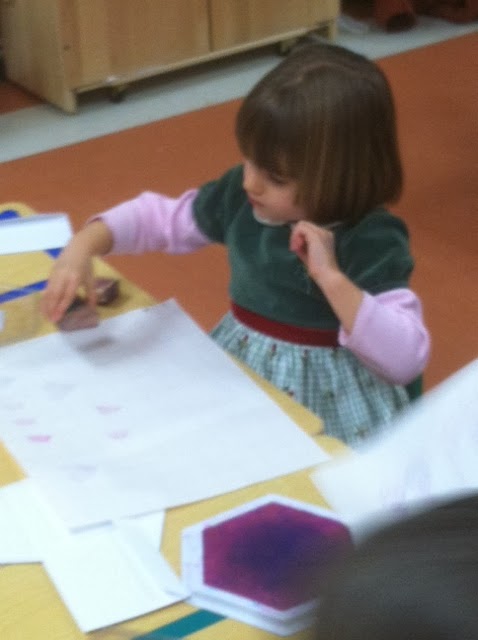Well, if you read the last post, then you know some of my current hesitations about blogging. Calls for permanence and indelible records be damned: there should be a spot in our hearts for the brief, the fleeting, the ephemeral, as well. Take, for instance, the popular website
Incredibox, which allows you combine various beats, musical motifs, and effects to create a tune that is, within certain parameters, all your own. It's a fun, flexible tool - and, Cleo, you're just about ready to give it a whirl. But notice, while you're busy dropping beats, that there's no save function. The music you make here is as music always was, before the advent of recording technology: a product of the moment in which it is made, and no more.
Again, though, I'm also sympathetic to calls for some permanent records of our graceful moments. We're the better, you might say, for being able to hear Maria Callas' voice, even if we can't see her live. And I remember a remarkable wall in an old family home on the Eastern Shore, on which the evolving heights of a gaggle of sons and daughters and cousins were marked in pencil, until the whole surface was a dense network of lines and dates: a cumulative reminder of a family's growth.
This blog is not that wall, quite. But it can be, and occasionally should be, a helpful record of sorts. And so, Cleo, here's a condensed summary of some of the patterns that currently govern our lives, as you take the turn from four and a half towards four and three quarters:
Your day usually begins at about 5:45. We can hear you sing and babble briefly, and then you often put a CD on, and take your pull-up off (and deposit it in the trash can: thanks!). You generally show considerable patience, too, in waiting until 6, which is when you're allowed to wake us up (although a couple of days ago you wandered into our room, asking, loudly, "Is 55 7 much before 6?"). We then wander downstairs, make you a blanket chair, and settle in for your only video of the day: typically, these days, a 25-minute stretch of a movie such as
Ratatouille, or
The Lorax. Then it's time for your breakfast, which generally means yogurt and honey, and your homemade granola with milk. You can get yourself dressed, and today I found you laying out clothes and remarking on how you would look, in a given combination, like a maiden. And by 7:50 we're out the door.
What do you do at school? It's largely a mystery to me. There's circle time, and you've clearly learned some songs there; Miss Winnie likes to call you a super listener, as well. I suppose that you typically play some princess games with Justice and Nia, and perhaps you also draw alongside Forrest, Jasper (who has been sending you roughly drawn missives every few days), or Mo. In this cold, your class doesn't tend to go out, but there are rotating stations, and when I pick you up I usually find you at an art station, drawing and writing (as today, when you designed a handsome card for Mom), or busily changing into a costume in dress-ups.
Then, of course, it's home, unless we stop for a bagel at Charmington's. It's a 13-minute drive to get Mom, and about 12 minutes from there - meaning that you can get through about half of one of your Classical Kids CDs. At home, you like to eat a few nuts and to play with a toy or two, before asking for a story. We chat as we get dinner ready, and tonight we also executed a Lite Brite pattern of a shark. And then, since you've been up for about 13 hours, you've been getting tired, suddenly and visibly, at about 6:45. We brush; you shed a tear or two but hold up; you wriggle into warm pajamas. A story or two - or, recently, a mere fraction of a graphic novel such as
How Mirka Got Her Sword - and it's lights out.
Until we get up and do it all over again, with variations.






.jpg)




